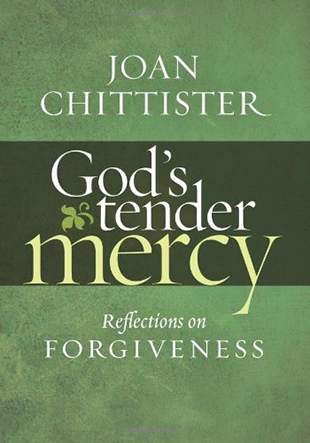"Jesus was a lover. Jesus was a radical lover," writes Joan Chittister, prolific writer and clear-sighted Benedictine nun. Perhaps his message "is more necessary than ever in this world intent on heavy sentences and excommunications and social shunning . . . There are people aplenty out there, struggling, trying, hurting, failing. Feel free: Hunt them down. Grind them under. Count them out. Throw them away. Chortle over their shame. Go ahead. Throw the first stone. Now that would really be a sin." Chittister, as usual taps into the national mood of racial profiling, the incarceration of young black men, the hatred of immigrants, and the attack on Islamic centers. Instead of mercy, these minorities are being condemned, harassed, and persecuted. Instead of leading the cause of love and respect for all, many conservative Christian churches across the land are leading the attack and failing to demonstrate love, understanding and compassion.
Perhaps it is the perfect time to heed the counsel of Pope John XX111 who said: "See everything; overlook a great deal; correct a little." With spiritual maturity comes the ability to walk a mile in the other person's shoes and to rein in our need to judge those outside the circle of family or friends. "There is no saint without a past," a Persian proverb teaches. "And there is no sinner without a future." Check out what happened to the thief on the cross whose life was transformed in the blink of an eye, who was forgiven and given a glorious future.
In her discussion of guilt and conscience, Chittister commends both as healthy aspects of human responsibility. She also writes about the power of forgiveness to free us from the burden of anger: "What I refuse to forgive continues to harm me. It consumes my heart, poisons my mind, drains my energies and cements my soul." Forgiveness does not tolerate revenge and that is a lesson that is slowly becoming appreciated by the American public which has for years supported the barbaric practice of capital punishment. Chittister suggests we listen to the words of Sir William Blackstone, legendary English barrister who wrote: "It is better that ten guilty persons escape than that one innocent suffer."
In the closing chapter of this brief but profoundly prophetic book, Chittister calls us to the spiritual practices of weeping and healing. Of the first, she comments:
"Weeping is a very life-giving thing. It wizens the soul of the individual and it sounds alarms in society. The Book of Ecclesiastes may be nowhere more correct than here. There is definitely a time for weeping. If we do not weep on the personal level, we shall never understand other human beings."
The spiritual practice of weeping softens our hearts and opens us to the suffering of others and it blesses us with a keen sense that we are all flawed creatures in the same world. Chittister concludes that we cannot heal ourselves by clinging to our wounds. And neither can we contribute to the repairing of the world without practicing forgiveness again and again.
